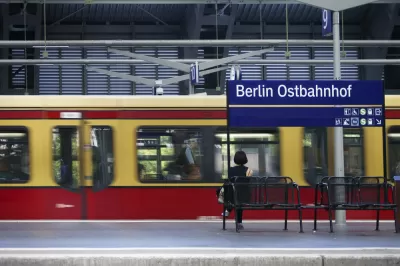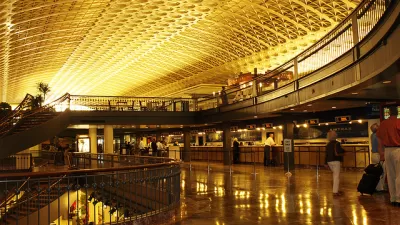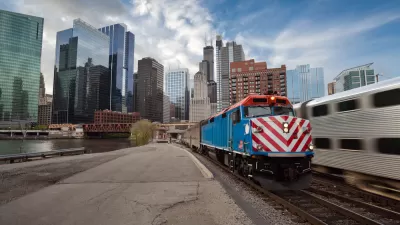The low-cost monthly ticket is a boon for some commuters and urban travelers, but critics of the program question the lack of investment in expanding train service to underserved rural parts of the country.

A new nationwide transit pass will allow people in Germany to ride any of the country’s local and regional buses and trains for €49, or $54, per month. As Josefine Fokuhl, Wilfried Eckl-Dorna and Feargus O'Sullivan outline in an article for Bloomberg CityLab, “That means with one ticket — which breaks down to less than the cost on one espresso a day — you can ride buses along the shores of Lake Constance on the Swiss border and traverse Hamburg’s harbor on the North Sea.”
The article notes that the plan doesn’t include any new funding for expanded transit operations, which could limit the impact of the new pass, with rail access in many rural parts of Germany still extremely limited or nonexistent. Other critics point out that encouraging more trips on “Germany’s already-overloaded networks” could lead to more disruptions in service without other improvements.
Supporters are optimistic that the ticket will be a positive influence on transit Europe-wide. “The impact of the ticket could ripple through to other countries by taking the potentially radical step of positioning transit systems as a public good to which all deserve affordable access. It could also be a model for others in the European Union, as the bloc aims to become climate neutral by 2050.”
FULL STORY: Germany Sets the New Standard for Cheap, National Mass Transit

Planetizen Federal Action Tracker
A weekly monitor of how Trump’s orders and actions are impacting planners and planning in America.

Map: Where Senate Republicans Want to Sell Your Public Lands
For public land advocates, the Senate Republicans’ proposal to sell millions of acres of public land in the West is “the biggest fight of their careers.”

Restaurant Patios Were a Pandemic Win — Why Were They so Hard to Keep?
Social distancing requirements and changes in travel patterns prompted cities to pilot new uses for street and sidewalk space. Then it got complicated.

Platform Pilsner: Vancouver Transit Agency Releases... a Beer?
TransLink will receive a portion of every sale of the four-pack.

Toronto Weighs Cheaper Transit, Parking Hikes for Major Events
Special event rates would take effect during large festivals, sports games and concerts to ‘discourage driving, manage congestion and free up space for transit.”

Berlin to Consider Car-Free Zone Larger Than Manhattan
The area bound by the 22-mile Ringbahn would still allow 12 uses of a private automobile per year per person, and several other exemptions.
Urban Design for Planners 1: Software Tools
This six-course series explores essential urban design concepts using open source software and equips planners with the tools they need to participate fully in the urban design process.
Planning for Universal Design
Learn the tools for implementing Universal Design in planning regulations.
Heyer Gruel & Associates PA
JM Goldson LLC
Custer County Colorado
City of Camden Redevelopment Agency
City of Astoria
Transportation Research & Education Center (TREC) at Portland State University
Camden Redevelopment Agency
City of Claremont
Municipality of Princeton (NJ)





























